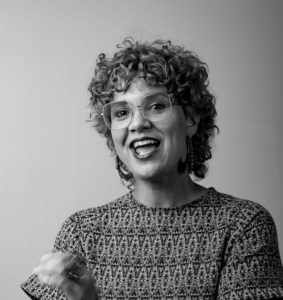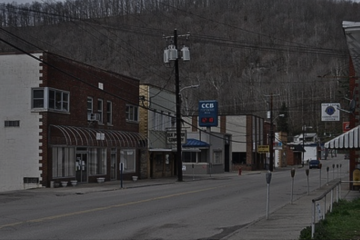by Crystal Good, writing for the “When All Are Counted” Project
In a deeply unsettling child neglect case that surfaced from Sissonville, West Virginia, the aching echo of Zora Neale Hurston’s words reverberates: “If you are silent about your pain, they’ll kill you and say you enjoyed it.” Jeanne Kay Whitefeather, one of the alleged perpetrators, hauntingly claimed, “They like it,” according to the police report (AVAILABLE HERE), adding a chilling resonance to Hurston’s grim prediction.
Ray Lantz, 63, and Jeanne Jay Whitefeather, 61, both of Sissonville, have been charged with felony gross child neglect creating a substantial risk of injury, as per a release from the Kanawha County Sheriff’s Office. After a concerned caller alerted the authorities, deputies discovered two Black children confined in a 20-by-14 barn, seemingly locked in for days, exposed to deplorable living conditions, and subjected to forced labor, away from the public eye.
Disturbingly, the children’s racial background has not been spotlighted, mirroring a wider trend of silence and systemic negligence surrounding the maltreatment of Black children.
The deputies described horrific conditions upon their forced entry into the property: two teenagers with dirty clothes and a noticeable lack of hygiene, situated in a barely furnished, windowless shed with concrete floors and plywood walls. A lone camera ominously perched in a corner. Further investigations led to another horrifying discovery: a smaller child, locked alone inside the main residence, ultimately removed after forced entry.
Whitefeather’s unsettling justification of the brutal neglect was simply that the children “like it.”
This somber reality in Sissonville intertwines with the analysis presented by Vivek Sankaran in “With Child Welfare, Racism Is Hiding in The Discretion.” Sankaran brings forth a staggering statistic: 53% of Black children will be investigated by Child Protective Services (CPS) during their childhood, reflecting pervasive racial biases embedded within the system. He explains how seemingly normal activities in affluent white neighborhoods could, due to racial bias, lead to child removals in Black communities. As per Sankaran, justice often becomes a function of race, income, geography, and the specific caseworkers or judges assigned to a child’s case.
This synergy of systemic failings becomes gruesomely visible in the Sissonville case and extends beyond, revealing a broader national crisis. Nearly 300 foster children ran away from state care in West Virginia last year, hinting at profound, systemic issues. Across the U.S., Black children are significantly overrepresented in child protective and foster systems, frequently attributed to conflating neglect with poverty and penalizing families instead of providing the necessary support. While approximately 10% of Black children will experience foster care—double the rate of white children—the silence and systemic biases within CPS shield these harsh truths from public scrutiny.
This tragic case and the broader, systemic inadequacies within the CPS give a face to silent suffering, compelling society to acknowledge and rectify the deeply-rooted racial biases and failures present in child protective systems nationwide.
Veiled Statistics: The Underrepresented Struggles of Black Children in West Virginia
In West Virginia (WV), the experiences of Black children frequently go unnoticed, languishing beneath the shadows of systemic neglect and overlooked until tragic incidents bring them momentarily into the statistical spotlight.
Per the latest report from the National Child Abuse and Neglect Data System (NCANDS), WV has the highest rate of children under investigation or receiving alternative responses, revealing a stark rate of child abuse and neglect victims. Yet, this alarming data does not spur the state government into scrutinizing the details further.
In my July piece for the “When All Are Counted” Project, titled “Unseen, Unheard: The Struggle To Find Black Children in West Virginia’s Data,” I illuminated a disturbing truth in WV: visibility for Black children within data surfaces predominantly amidst tragic circumstances.
The West Virginia Child Advocacy Network (WVCAN) is a crucial resource, conducting essential reparative work when children are extracted from abusive situations. As the statewide leader in battling child abuse, WVCAN collects and aggregates data in their annual reports, accessible here: https://wvcan.org/about/media/.
In WV, Black children’s stories tend to become visible in data only when intersecting with tragedy, veiled and muted, unless they culminate in suspension or death.
Despite the stark data, several challenges prevail, notably the state’s deficient infrastructure that inhibits timely reporting, creating unsettling voids, especially among the unseen Survivors: Black families and children traversing traumatic landscapes within healthcare and school systems, among others.
It is imperative that state agencies, including the WV Department of Health and Human Resources, Department of Education, and Bureau of Juvenile Services, diligently fulfill their obligations to report race-related information. A persistent data gap exacerbates racial disparities across foster care, juvenile, and healthcare systems, impeding advancements toward a truly equitable system.
National data presents a consistent issue: Black children are continually overrepresented in foster care. Although they comprised 14% of the total child population in 2021, Black children accounted for 22% of all children in foster care, according to the Annie E. Casey Foundation. This disproportionality demands attention, especially considering the lack of data on Black children within various West Virginia systems (such as foster care and Child Protective Services).
Hate Crime in the Harrowing Case of Neglected Black Children in Sissonville
The shocking case of the children found in Sissonville in deplorable conditions reveals a haunting truth about societal partial blindness toward the plight of Black children. Despite the glaringly evident ordeal of these children, official responses remain markedly subdued, even when additional charges such as hate crimes might be plausible.
Hate crimes are federal crimes motivated by bias against race, color, religion, national origin, sexual orientation, gender, gender identity, or disability. However, one could deduce that Donald Lantz and Jeanne Whitefeather were acutely aware that Black children, often neglected within systemic mechanisms, are vulnerable targets for abuse. Thus, the arduous journey toward visibility and urgency in confronting the poignant challenges experienced by Black children in West Virginia continues, with significant data still eluding our grasp concerning Black children in foster care and the conditions propelling them into these systems.
Our future efforts must ensure that Black lives, stories, and struggles are not only acknowledged but actively addressed. Informed by accurate data and steered by the voices of those enduring racial inequities, we must utilize data to empower marginalized communities and invoke positive change, ensuring no child remains unseen or unheard in their suffering.
The Indispensability of Mandated Reporters
The unfurling episode in Sissonville unveils the glaring deficiencies within our child protection mechanisms, illustrating how actions can be perilously postponed, protracting the victim’s anguish even in the face of mandated reporters. Mandated reporters are crucial in identifying and signaling instances of child abuse and neglect. However, bureaucratic sluggishness and systemic failings often hampered the path from reporting to actionable intervention.
Resources and training for mandated reporters are accessible, as demonstrated by platforms like Prevent Child Abuse WV, a mandated report training module I was proud to help produce in partnership with the WVDE, WVCAN, and PCA. And share my story of abuse, neglect, and hope.
The video and other links and resources are also embedded in the West Virginia Child Advocacy website, a resource and organization to support.
An urgent call for action insists that we act swiftly and competently after reports of abuse are made. The children in this heart-wrenching situation were not hidden from the authorities; alert citizens had pointed them out as early as May.
It can’t be stressed enough how vital it is to report crimes against children, especially when clear deficiencies in the system become apparent.
I have adhered to a personal motto: tell until someone listens; someone will listen – throughout my life. I endured abuse from ages 5-15, along with all the residual, echoing pain that emanates from such a traumatic past.
My steadfast belief remains: Tell until somebody listens because somebody will listen. And thankfully, someone finally listened and rescued these children.
Programs, resources and ways to report from the Handle with Care Program website
- If you or someone you know is in immediate danger, please call 911
- The Centralized Intake, accessible through the WV Child Abuse Hotline at 1-800-352-6513, is the sole entry point for all suspected abuse and neglect reports. It addresses the needs of both children and vulnerable adults, operating 24/7/365.
- The WV State Police Crimes Against Children Unit, number is 304-293-6400.
- National Human Trafficking Resource Center (NHTRC), 1-888-373-7888 or Text INFO or HELP to BeFree (233733)
- Polaris Project: 202-745-1001 or email: info@polarisproject.org
- National Center For Missing & Exploited Children
If you think you have seen a missing child, or suspect a child may be sexually exploited, contact the National Center for Missing & Exploited Children 24 hours a day, 7 days a week. Call 1-800-843-5678 - Make a Report at www.cybertipline.com
- FBI’s Innocence Lost National Initiative: Call 1-800-225-5324 OR 1-800-CALL FBI
- Or use the Child ID App: The first mobile application created by the FBI provides a convenient place to electronically store photos and vital information about your children so that it’s literally right at hand if you need it. You can show the pictures and provide physical identifiers such as height and weight to security or police officers on the spot. Using a special tab on the app, you can quickly and easily email the information to authorities with a few clicks. The app also includes tips on keeping children safe and specific guidance on what to do in those first few crucial hours after a child goes missing.
- U.S. Department of Homeland Security: Report suspected human trafficking activity to law enforcement (available 24/7, in over 300 languages and dialects at 1-866-347-2423 (toll-free) or 1-802-872-6199 (non-toll-free international). Report online at www.ice.gov/tips.
- West Virginia State Police
- West Virginia Missing Children Clearinghouse: Call 1-800- 352-0927 or email wvcacu@wvsp.gov.
- Crimes Against Children Unit: Call 304-293-6400 or email: wvcacu@wvsp.gov
- West Virginia Civil Rights Task Force
- United States Attorney’s Office:
Southern District of West Virginia
Robert C. Byrd U.S. Courthouse
Suite 4000
300 Virginia Street
Charleston, WV 25301
304-345-2200 phone or 304-347-5104 fax - United States Attorney’s Office
Northern District of West Virginia
U.S. Courthouse & Federal Building
Suite 3000
1125 Chapline Street
Wheeling, WV 26003
Call: 304-234-0100 - West Virginia Fusion Center: Call (304) 558-4831 or 1-866-WVWATCH. Email: wvfusion@wv.gov

Crystal Good (she/her/hers) is a writer-poet, performer, and publisher whose work seeks to trouble the Appalachian narrative toward inclusion and a more truthful representation. She is the founder and publisher of Black By God THE WEST VIRGINIAN, a print and multimedia publication centering Black voices to address the information gap. Crystal is the author of “Valley Girl” her debut poetry collection and holds the entirely made up (but totally sincere) office of Social Media Senator for the Digital District of West Virginia to encourage digital and political literacy. Crystal tweets @cgoodwoman.



0 Comments